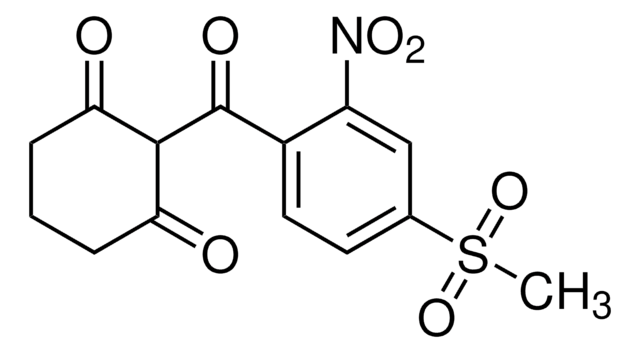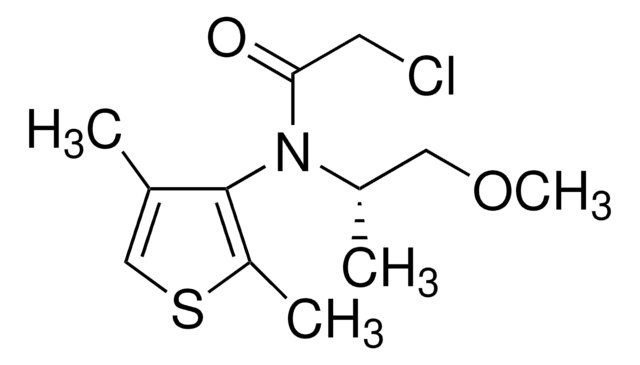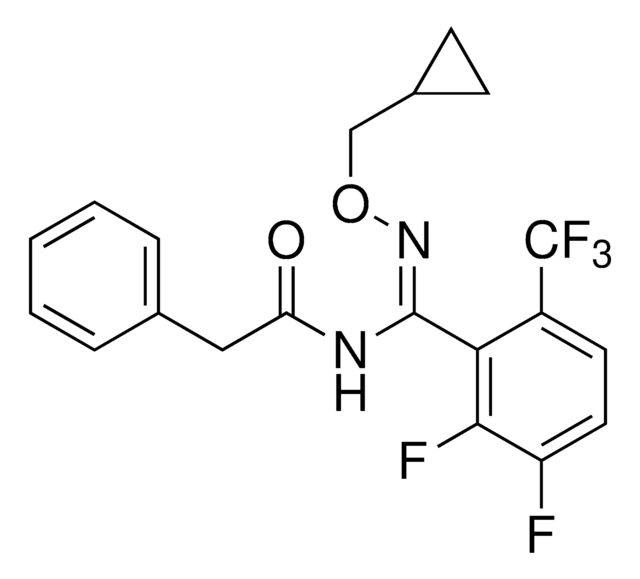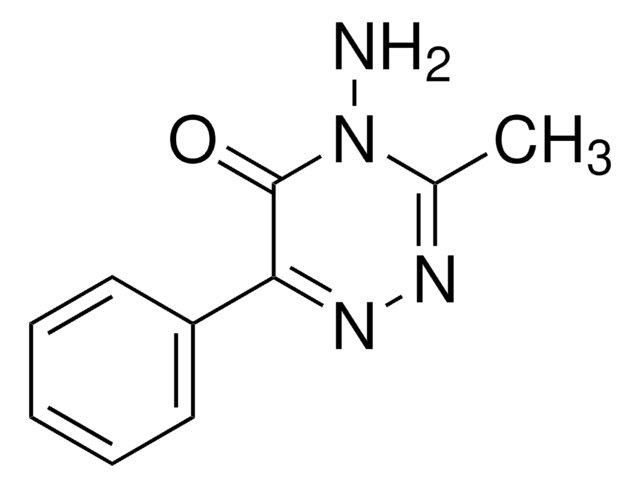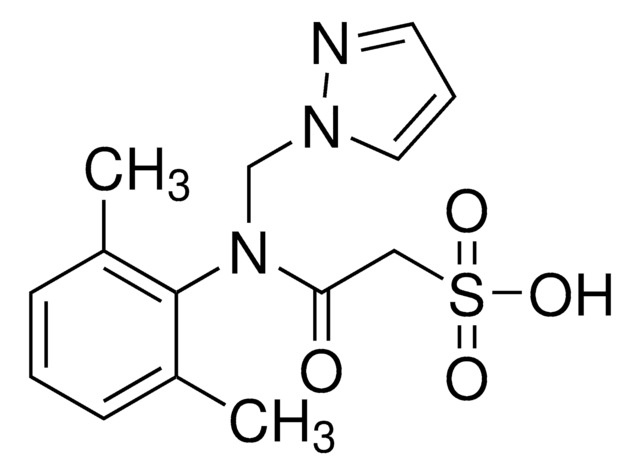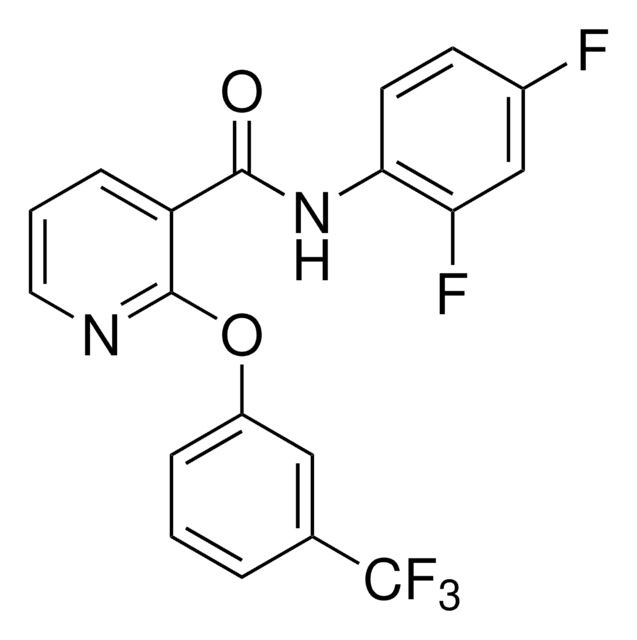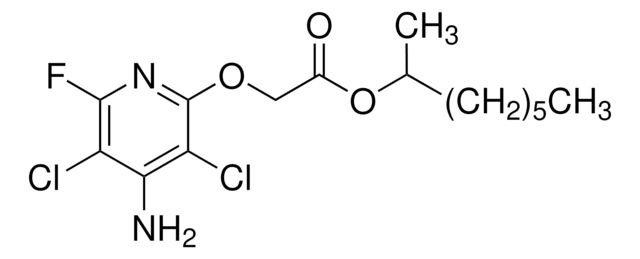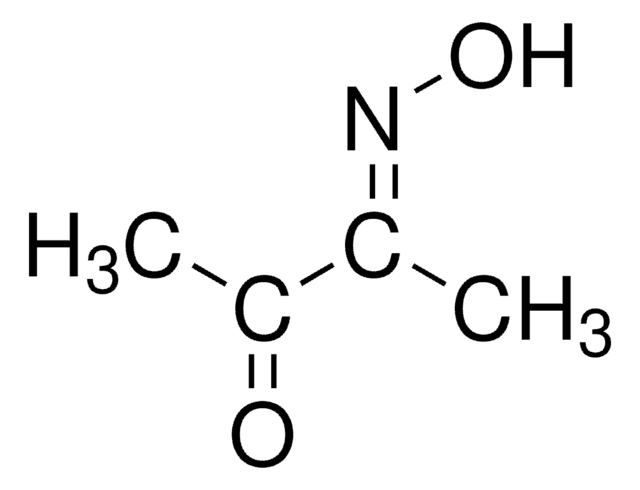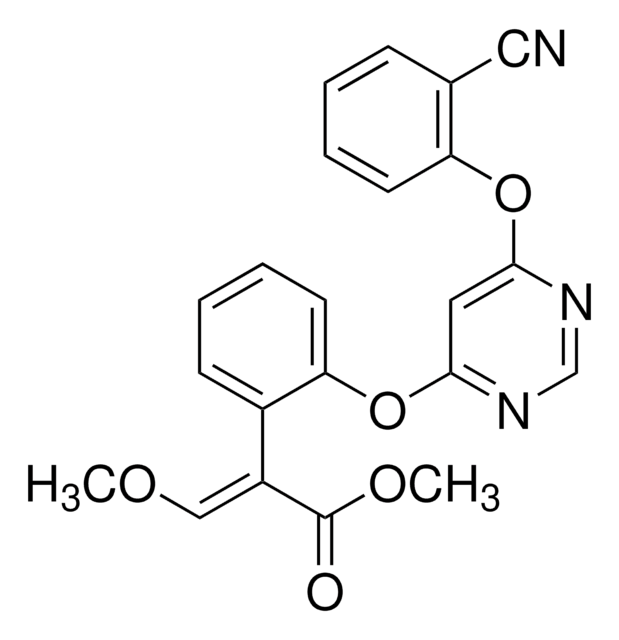About This Item
Recommended Products
grade
analytical standard
Quality Level
product line
PESTANAL®
shelf life
limited shelf life, expiry date on the label
technique(s)
HPLC: suitable
NMR: suitable
gas chromatography (GC): suitable
mp
74-78 °C
suitability
passes test for identity (NMR)
application(s)
agriculture
environmental
format
neat
SMILES string
Cc1cccc(C)c1N(Cn2cccn2)C(=O)CCl
InChI
1S/C14H16ClN3O/c1-11-5-3-6-12(2)14(11)18(13(19)9-15)10-17-8-4-7-16-17/h3-8H,9-10H2,1-2H3
InChI key
STEPQTYSZVCJPV-UHFFFAOYSA-N
Looking for similar products? Visit Product Comparison Guide
General description
Application
- Natural water samples by high performance liquid chromatography-electrospray-tandem mass spectrometry (HPLC-ESI-MS/MS).
- Plant foodstuffs by capillary gas chromatography equipped with electron capture detector (ECD) as well as nitrogen phosphorus detector (NPD) followed by MS analysis in electron impact ionization (EI) mode.
- Drinking and related waters by solid phase extraction (SPE) followed by GC-EI-MS.
- Wastewater samples by SPE and subsequent analysis with ultra-performance liquid chromatography combined with time of flight mass spectrometry (UPLC-TOF-MS).
Recommended products
Legal Information
Signal Word
Warning
Hazard Statements
Precautionary Statements
Hazard Classifications
Acute Tox. 4 Oral - Aquatic Acute 1 - Aquatic Chronic 1 - Carc. 2 - Skin Sens. 1
Storage Class Code
11 - Combustible Solids
WGK
WGK 3
Flash Point(F)
Not applicable
Flash Point(C)
Not applicable
Personal Protective Equipment
Choose from one of the most recent versions:
Certificates of Analysis (COA)
Don't see the Right Version?
If you require a particular version, you can look up a specific certificate by the Lot or Batch number.
Already Own This Product?
Find documentation for the products that you have recently purchased in the Document Library.
Customers Also Viewed
Our team of scientists has experience in all areas of research including Life Science, Material Science, Chemical Synthesis, Chromatography, Analytical and many others.
Contact Technical Service